Francis will leave confusion and chaos for the next pope to clear up
As pope, Francis has been unpredictable and confusing but he’s had one fixed star – a dislike for conservatives.

Soon, 123 Catholic cardinals under the age of 80 will choose the successor to Peter, to inherit the most difficult job in the world. Francis is 86 and in poor health, with limited mobility, in and out of hospital.
Following the precedent of Pope Benedict, he could choose to retire at any time.
Francis’s 10th anniversary as Pope passed in March. It has been a wild ride, and polarising. When Francis, Jorge Mario Bergoglio, was elected, he became a worldwide celebrity and a darling of the Western media.
No one should doubt Francis’s personal holiness or sincerity. He has lived out his values. A tough-as-boots Jesuit, he treats his vow of poverty seriously and takes the injunction to love the poor as a central guiding principle.
But leading the world’s biggest religious denomination – there are 1.3 billion Catholics – is an essentially impossible job.

Francis displayed an early genius for PR gestures, paying his own hotel bill, declining to live in ornate papal apartments. He emphasised the social dimension of Catholicism, especially love for the poor and marginalised.
He has been outspoken politically; had a lot to say theologically; struggled with reforming the Vatican bureaucracy, especially Vatican finances; been weighed down by the revelations of past clerical child abuse and tried to offer a general direction.
How do we assess the Francis papacy?
One of the most distinguished Catholic intellectuals, George Weigel, the biographer of John Paul II, is frankly scathing. In a widely reprinted column, Weigel said the mood in Rome was one of melancholy and dread, and a fear of speaking openly because under Francis critics were punished: “Living and working in this slough of dysfunction is enervating, and the inconsistencies and contradictions in papal pronouncements and policy … have become achingly apparent”.
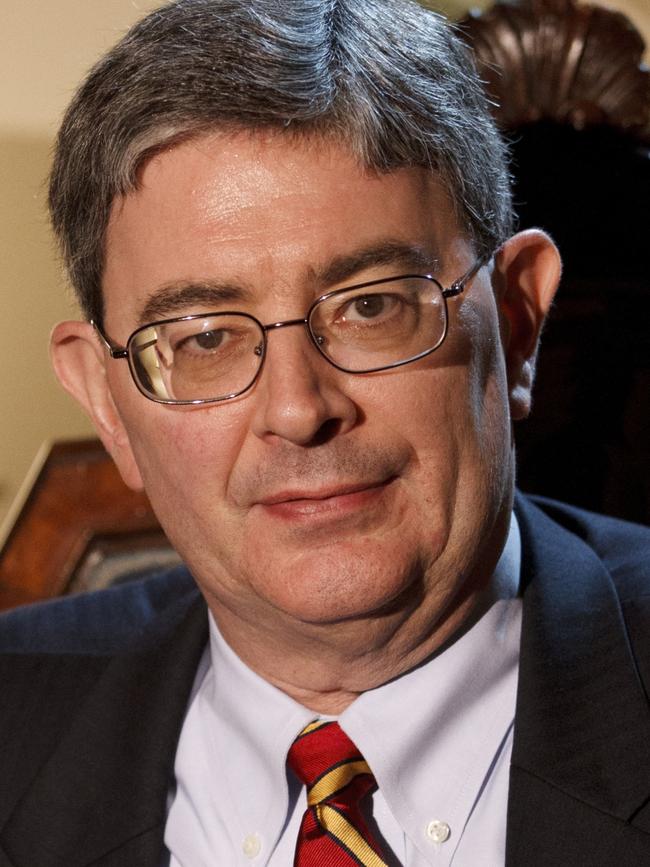
Weigel accused Francis of stalling in reform of Vatican finances, allowing the German bishops to defy traditional Catholic moral teachings, and systematically dismantling the legacy of John Paul II. He also claimed Vatican influence in global affairs has declined.
Weigel has been particularly critical of the Vatican’s deal with the Chinese government. This forced the underground Catholic Church to amalgamate with the officially sanctioned “patriotic” church and ceded a Beijing government veto on the appointment of any bishops, although Beijing has allowed very few new bishops at all. This deal is despised by Hong Kong’s heroic Cardinal Joseph Zen, who has not had a papal audience to plead his objections.
Dan Hitchens, a younger journalist and former editor of Britain’s Catholic Herald, wrote in The Spectator: “The Pope Francis show has become exhausting. Time and again, he has made bizarre, ambiguous or divisive statements about long-established Catholic teachings, then refused to clarify his meaning.”
Consider these examples. Francis commented that the idea of an eternal hell is inconsistent with the logic of the gospel. But divine judgment has been Catholic doctrine for 2000 years. To change this belief would be very big news. For the head of the worldwide church, vested with unique teaching authority, to simply comment offhandedly that the doctrine doesn’t make sense, but then not follow that up with change or explanation, is deeply confusing. Hell is still in the
Catholic catechism, and indeed in the New Testament. Matthew 25: 41 – 46: “ … Then he will say to those at his left hand, You that are accursed, depart from me into the eternal fire that is prepared for the devil and his angels … And these will go away into eternal punishment, but the righteous into eternal life.”
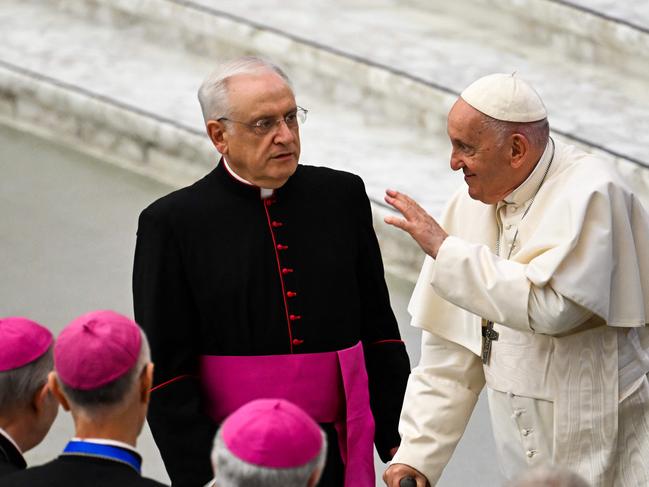
Francis has made comments supporting relaxing the rules about who can receive communion at Catholic mass. For non-Catholics, this may seem marginal, but the Eucharist, the sacramental body of Christ, is central to Catholic belief. If the Pope has doubts about its significance, this too is pretty destabilising. Francis never followed up his own comments.
Francis has made similar sceptical comments about numerous traditional Catholic moral teachings, then just left them hanging.
Real liberals have as much to be disappointed about as conservatives. With Francis the most liberal Pope ever, an expectation developed that there would be female priests, blessings for homosexual unions, open communion for non-Catholics and divorced and remarried Catholics, an end to clerical celibacy, much easier access to divorce and remarriage within the church, and much else.
None of this happened. Liberals tend to be still fairly hopeful, though, because Francis has moved the church in their direction. He has appointed a lot of new cardinals. The next pope could be Francis ultra.
Much of what Francis actually says theologically is quite conservative. He rejects contemporary gender ideology, he’s a steadfast opponent of abortion, he’s devoted to Mary and frequently talks about the active presence of the devil in the world. Those media who love him on climate change ignore this stuff.
But Francis presents traditional Catholic teaching as a beautiful ideal. He then tends to slide towards the position that such ideals are not always practical or reasonable.
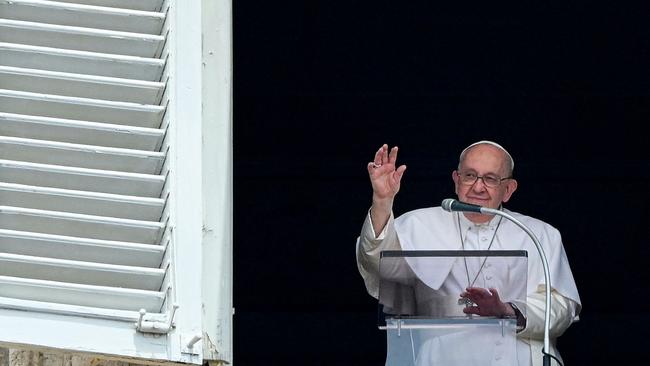
This is in stark contrast to the teachings of the two previous popes, especially John Paul II, who in his magnificent 1993 encyclical (teaching letter), Veritatis Splendor (The Splendour of the Truth), wrote: “It would be a very serious error to conclude that the church’s teaching is essentially only an ideal which must then be adapted, proportioned, graduated to the so-called concrete possibilities of man … Christ has redeemed us! This means he has given us the possibility of realising the entire truth of our being … It is quite human for the sinner to acknowledge his weakness and to ask mercy for his failings; what is unacceptable is the attitude of one who makes his own weakness the criterion of the truth about the good …”
Ross Douthat, a brilliant young New York Times columnist, in his seminal 2018 book To Change the Church, argues that moral relativism of the kind Francis sometimes seems to favour contradicts Christ: “Jesus doesn’t urge Peter to go ahead, betray me, I understand. Jesus doesn’t tell the woman taken in adultery: go back to your lover because your situation is complex. Jesus doesn’t tell Zacchaeus the tax collector: actually keep the money you have unjustly taken because you need it to support your family. Jesus dines with sinners, he hangs out with prostitutes and publicans, he evangelises the much-married Samaritan woman, he welcomes thieves into eternity. But he never confirms them in their sins, or makes nuanced allowances for their state of life; that sort of rhetoric is alien to the Gospels.”
Francis can be denunciatory and tough in his judgments on governments. He’s extremely vocal on climate change, favours massive wealth transfers from the West to the global south, seems to espouse an almost complete open borders policy, and he is a ferocious critic of elements of capitalism, without having anything to say about communism or Latin American leftist dictatorships.
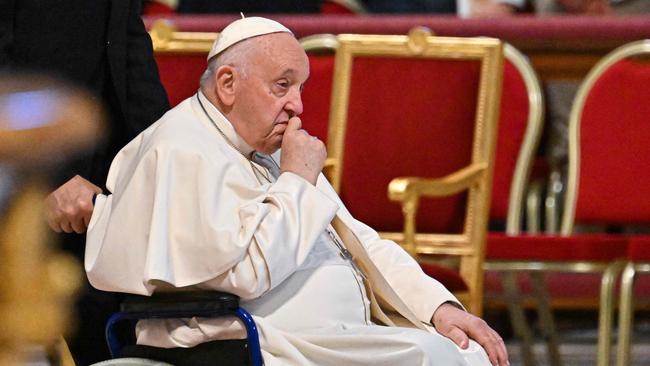
He has every right to speak his mind on these matters. In all such statements there is always a line somewhere that acknowledges that neither he nor the church has all the answers, and his views on secular matters don’t carry religious authority.
Catholics believe that when the Pope makes a formal statement on faith or morals, ex cathedra petri – from the Chair of Peter – and defines it as such, then it is uniquely authoritative, or infallible. Such statements are very rare. The Pope has a more general teaching authority on faith and morals, but no authority on economics. Nonetheless, Francis’s background perhaps goes some way to explaining both his political views and his style of church leadership. The same was true of John Paul II. He was a Pole, shaped by his heroic resistance first to Nazism, then communism. Though critical of Western decadence, he appreciated the historic role of Western democracy in liberating eastern Europe.
Francis is an Argentine of Italian extraction. He’s not much impressed by the Anglophone world. For the first time in memory, the Catholic Archbishop of Sydney is not a cardinal. Francis is instinctively suspicious of the US. The Peronist style (named after the post-war Argentine president, Juan Peron) sees itself as neither communist nor capitalist. It combines a populist leadership style with big government, and thinks all social problems can be solved by government acting energetically. It also really, really dislikes being disagreed with.
This may explain the mystery of Francis’s one real, active dislike. He can’t abide conservative Catholics, especially traditionalists. He has tried, as near as possible, to ban the old Latin mass. Yet his general rhetoric is to decentralise power and diffuse authority, except, it seems, for conservative Catholics. The old Latin mass was superseded in the early 1960s by a more contemporary rite said in vernacular languages. Almost no one campaigns to bring it back as the main Catholic mass.


But liturgical reform has been a shocking failure for the modern church. The average mass in an average parish in the West has been stripped of almost all the traditional Catholic beauty and now often carries on with all the solemnity of a Rotary Club meeting, frequently with shockingly banal folk hymns, the worst residue of ’60s culture. The Latin mass, to the maddening horror of ageing liberals, has developed a strong following not among old folks nostalgic for the past but among the young, yearning for truth and beauty. Every week hundreds of thousands of young Americans and French in particular attend the Latin mass.
Francis has also imposed all kinds of new restrictions on communities of contemplative nuns, who spend their lives in prayer and tend to be theologically conservative.
Francis pulled apart, and sacked most of the leading staff of, the John Paul II Institute, which propagated John Paul II’s theology of the body, a contemporary but traditional Christian interpretation of human sexuality arising from human dignity.
As Hitchens wrote: “Progressives have the weight of respectable opinion on their side, as well as the media … but it is often the younger generations who are most doggedly attached to the old doctrines.”
Francis was elected as a centrist from the global south who would reform the Vatican bureaucracy and clean out financial corruption. After a decade, with the church in continuing radical decline in Western societies, though its conservative branches in Africa and to some extent Asia are doing well, it’s legitimate to ask: has Francis had any normative influence on Western culture at all, or has he just stopped fighting the hard bits, or been too confused to have influence one way or the other?
Francis has affected the choice of the next pope by appointing so many cardinals who, on the surface at least, share some of his views. But it’s likely the cardinals will want someone less erratic, more predictable. The new pope won’t be an obvious conservative who repudiates Francis. That’s not the way of popes. He might be a Francis-lite, who continues some rhetoric but runs a more predictable ship.

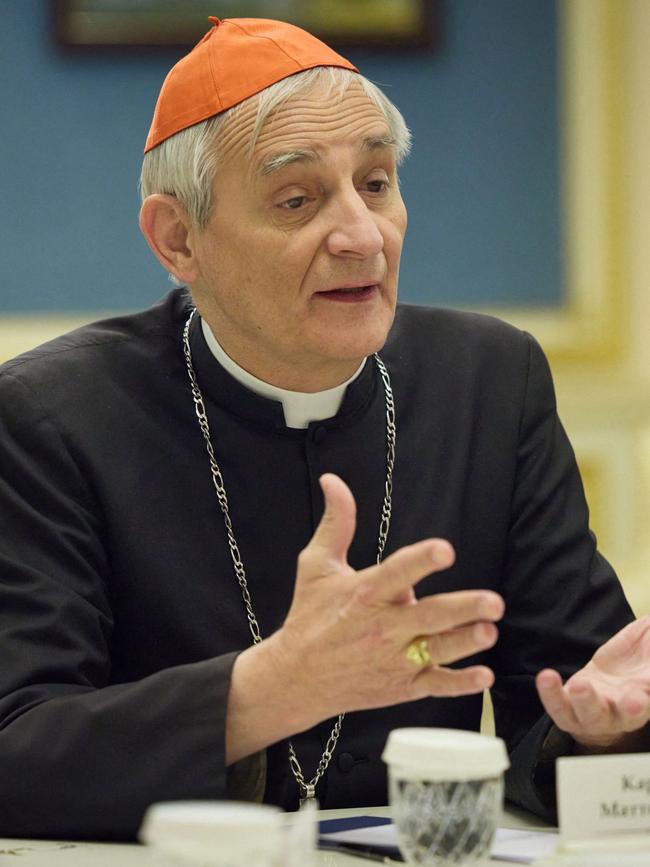
One big problems is always electing popes in their 70s. John Paul II was 58 when he became pope in 1978 and his almost superhuman vigour, his vibrant love of life, his energy for the gospel, ran through the whole church in an electric moment. But if you choose a man that young you might have to put up with him for 30 years. Choosing a man in his mid-70s means probably only a decade, but the second half of the papacy is dominated by geriatric frailty.
It’s early days, but leading candidates are emerging. Cardinal Peter Erdo, 70, of Budapest has held senior Vatican positions and is a very sure hand. He’s more conservative than Francis, but not anti-Francis. Cardinal Pietro Parolin, 68, the Vatican Secretary of State, lacks experience running a diocese but would be a smooth continuity candidate. So would Cardinal Matteo Zuppi, 67, a leading Italian progressive. A more radical move would be to elect an African. The conservatives’ favourite, Cardinal Robert Sarah, 78, of Guinea is now probably too old. Cardinal Peter Turkson, 74, of Ghana, remains a chance.
Everyone should be careful what they wish for. Progressives love to talk about the global south. But there, religious people are religiously religious, and therefore more conservative, than folks in the West. Papal elections are no more predictable than general elections. A new pope could surprise us all.



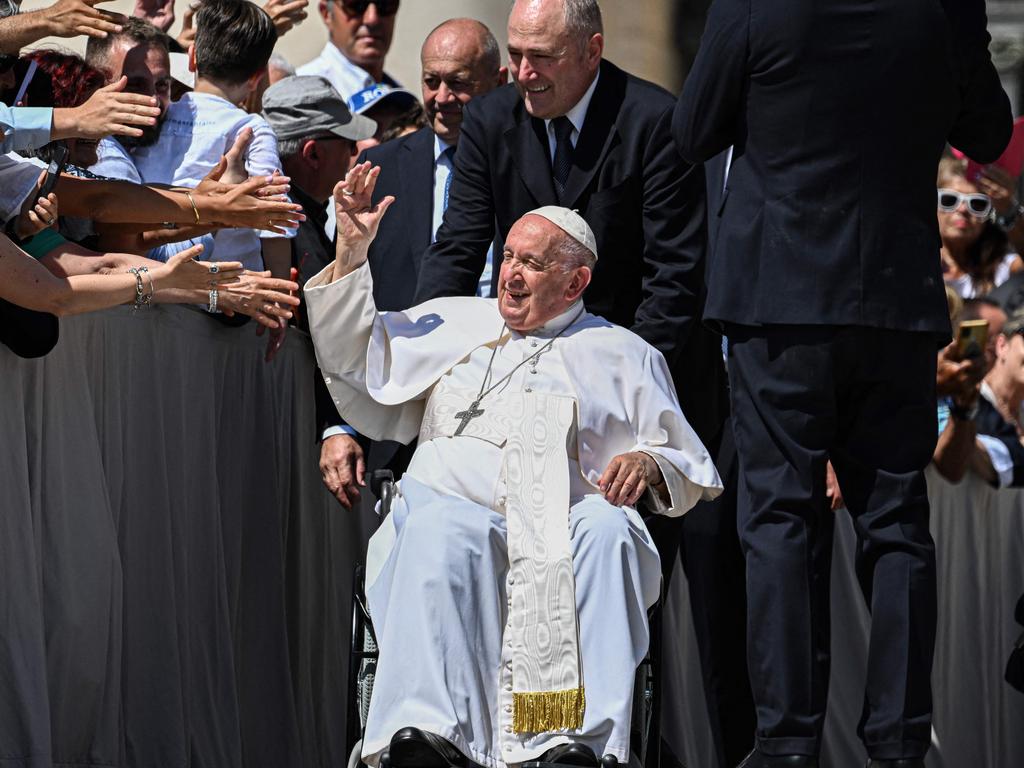

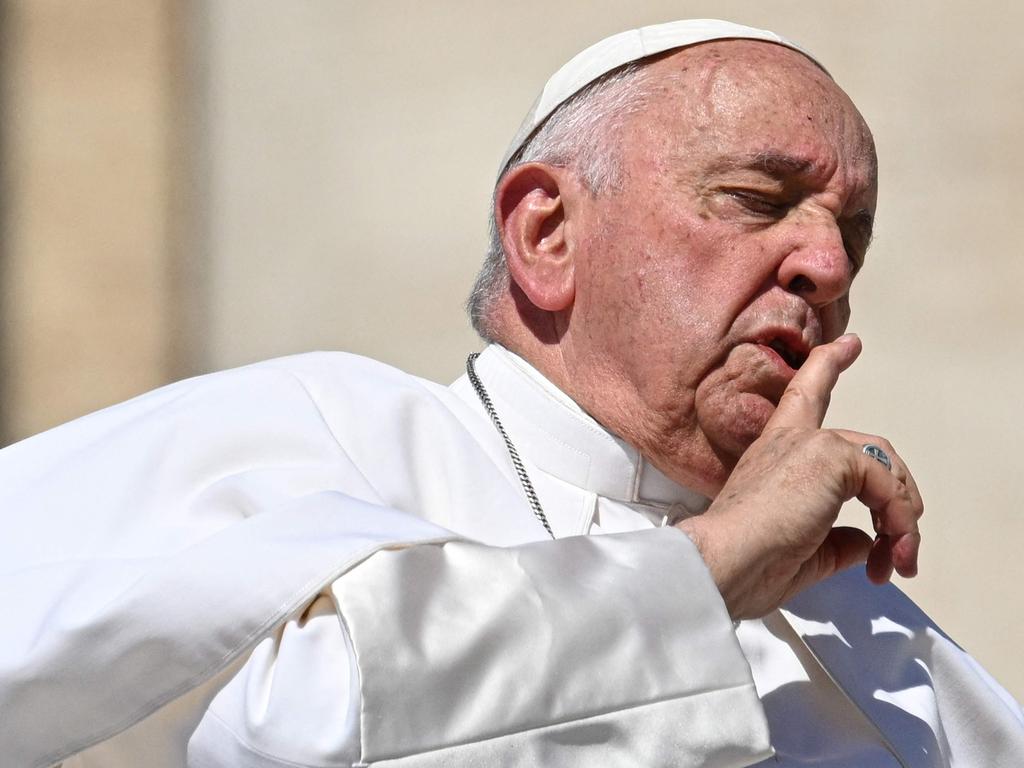


Cardinal George Pell stayed in Rome to have hip replacement surgery this January, shortly after which he died, for one reason. He wanted to be sure to be in Rome in case there was a conclave of cardinals to elect a new pope. Pell didn’t wish Pope Francis any harm but, like the whole Catholic world, he could see the Francis papacy is coming to an end.